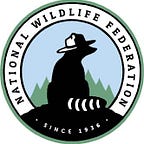House of Representatives Sets Sights on Our Public Lands … Again!
It’s incredible that members of Congress, the people who are supposed to be promoting the general welfare, would need to be reminded how valuable our nation’s public lands are. These lands, owned by all Americans, contribute billions of dollars annually to local and state economies through money spent on hunting, angling, wildlife watching and tourism.
Public lands provide food and shelter for fish and wildlife, clean air and clean sources of drinking water for communities across the country. The great, open landscapes, pristine waterways and the animals, fish and birds traveling routes that wildlife have traveled for centuries are a source of national pride and identity.
A rule change approved by the House assigns a big zero to the worth of public lands. It’s an accounting gimmick, or, to be more blunt, a lie, so if Congress wants to unload public lands it can claim there will be no cost to Americans.
Previously, the Congressional Budget Office undervalued the lands worth, focusing on extractive industries, including mining and logging, and playing down the economic benefits from other uses.
The new rule erases all value, making it easier to sell or transfer national public lands to the states or to others, something a small but strident group of state and federal lawmakers has been clamoring to do for a while.
But hunters and anglers and other conservationists use a different accounting system, one based on real numbers and true value. They reject the lie that Americans will lose nothing if the lands are sold to the highest bidders. In a Jan. 24 letter to Congress, 20 sportsmen’s and outdoor organizations representing millions of Americans wrote:
“By designating land-transfer legislation as budget-neutral, and eliminating existing safeguards against undervaluing public lands, our nation’s greatest asset has been stripped of its true value.”
It didn’t take long for lawmakers to take advantage of the rule change. A bill introduced by Utah Rep. Jason Chaffetz would have disposed of 3.3 million acres of public lands in 10 Western states first identified in a 1997 report as potentially suitable for sale or exchange.
After an outcry from sportsmen and women and all kinds of other people who love public lands, Chaffetz announced he won’t pursue the legislation.
But there’s plenty more where that bad idea came from, including another one from Chaffetz. This one, HR 622, would get rid of the Bureau of Land Management and U.S. Forest Service law enforcement officers who protect our public lands and historic and archaeological treasures and instead give grants to local sheriff’s departments to do the job.
Anyone paying attention knows that most local law enforcement agencies can’t take on even more responsibility. How long would it take before we’d see more Malheur-type assualts on the lands and waters that sustain our fish and wildlife and outdoor heritage?
Despite the fact that the majority of Americans don’t want their public lands sold off, carved up or given away, we continue to see bills in state legislatures and Congress to undermine management of the lands, sell or transfer them to states or private interests. The accounting gimmick passed by the House might say these lands have no value, but in the communities where tourism and recreation on public lands provide renewable, stable sources of revenue, the losses will be real. On the ground and on the waterways, where people go to hunt, fish, hike, bike and paddle, where they go to renew themselves and make lasting memories, the losses will be real.
Some land sales or exchanges might make sense and provide benefits. The management of public lands can and should be improved. The National Wildlife Federation has joined other sportsmen’s and conservation organizations to push for changes to give the public and communities more input into decisions and encourage more thoughtful planning so companies and the public have more certainty and conflicts can be addressed upfront. But improvements approved or in the works, including the Bureau of Land Management’s Planning 2.0 initiative and a rule to reduce the methane wasted at oil and gas operations on public lands, are under attack.
The current Congress doesn’t seem interested in making improvements to ensure that the public lands heritage established over more than a century endures for centuries more. Whether fueled by ideology or economic gain for a few at the detriment of the many, the goal appears to be to “win” the debate over control of national public lands that’s been playing out in certain quarters for a while.
For sportsmen and conservationists, there is no debate. No accounting gimmick or sleight of hand is going to distract us from fighting to keep our public lands in public hands.
Make Them Hear : Tell your members of Congress enough is enough! Public lands are not for sale.
www.nwf.org/stoptheseizure
Want to make an even bigger difference? Call your representatives in the House of Representatives and voice your concern for the ongoing attacks on pyblic lands. Tell them you want to keep it public! Just dial the switchboard: 202–224–3121
The National Wildlife Federation is dedicated to protecting our public lands for wildlife and for future generations. Join us in opposing attacks on our public lands, follow us on Facebook, Twitter, and Instagram to learn more.
